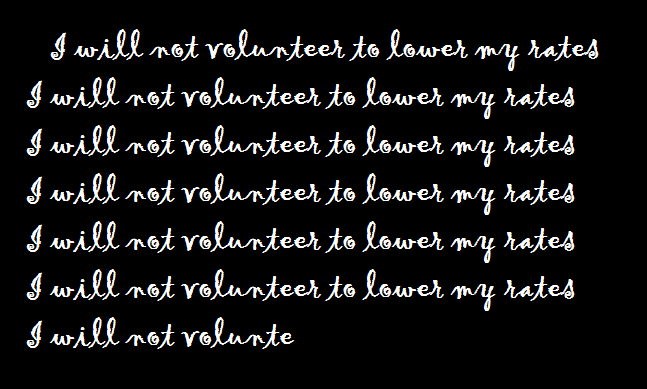
While news outlets have touted the rise of the “gig economy” and new business models have sprung up around the increasing ease of crowdsourcing and remote work, some legislators and consumer groups have voiced growing concerns about worker exploitation. Those concerns aren’t entirely misplaced. Worker misclassification is real and, like most predatory practices, the harm falls hardest on those least able to weather it.
In some industries–most notably the rideshare industry–it’s difficult to get a handle on whether workers are being exploited and to what degree. In fact, it’s difficult to get a handle on whether those workers are workers at all. There’s a fair argument to be made that drivers don’t actually work for Uber or Lyft at all, even as independent contractors. The business model is in many ways analogous to a freelancing platform where the platform connects freelancers with clients and the freelancer pays the platform a percentage of his or her earnings for marketing, payment processing, and other aspects of the transaction managed by the platform.
Even if we assume Uber and Lyft drivers work for their respective companies, views are mixed on whether the current model helps or hurts them–and that includes views among drivers.
But, there are other, less visible industries where the misclassification is clearer. One example is the massive remote call center industry, wherein some companies use remote, work-from-home call center operators on a contract basis. But, call center work isn’t like freelance writing or driving for Uber. A call center rep has to be on the phones during very specific times, working from a script provided by the employer, and generally being subject to the same requirements as an employee…just without worker’s compensation protection, unemployment insurance, company benefits, or any employer contribution to taxes. They also aren’t protected by the state and federal statutes governing minimum wage and overtime pay. While there are some who think free choice should be entirely unfettered, I think that most people believe there is a floor, and that people shouldn’t be treated like employees in every way that benefits the employer and none of the ways that benefit the worker.
Fortunately, the federal government and most if not all states already have laws in place to address worker misclassification, and those issues can be managed without new legislation. For example, in 2016 the Wage and Hour Division of the U.S. Department of labor recovered $150,000 in back wages for misclassified call center workers and forced the employer to shift to standard employment arrangements with its operators. And, in 2018, the California Labor Commissioner issued more than $1,000,000 in citations against a nail salon for misclassification and wage theft.
The Forgotten Gig Workers
New technology, beginning with the Internet, has made it much easier for people to fill roles from remote locations, in ways most couldn’t have imagined a decade ago. The increase in freelancing and the spread of independent contractors to industries that once required brick and mortar employees has gotten a lot of attention. But, in the flurry of concern about what this shift means for the economy and for workers at the lower end of the gig economy spectrum, legislators, consumer advocates and others have forgotten about some of us.
I started freelancing in 1989. That relationship started with a notice posted on a cork board in my law school lobby, and I mailed in my work on 5 1/4″ floppy disks. In the intervening three decades, I’ve worked as a full-time employee, a part-time employee, a remote employee and an independent contractor. Like many of my colleagues, I make the most money, enjoy my work the most, and have the most time for my family and other things I value when I’m freelancing. Freelancing also allows me to earn a very solid living around a chronic medical condition that makes showing up to work at 8 a.m. every day difficult for me (in the sense that I end up in the hospital every time I try to sustain it). And, of course, I could never find work that paid anywhere near my freelancing rate in my small Midwestern town.
That’s the reality for writers, web designers, illustrators, programmers and others around the country–some freelance while working on building their own businesses. Some are stay-at-home parents who are also able to partly or fully support their families with freelance work. Some have medical conditions like mine, that allow them to be productive, self-supporting members of society only if they have the flexibility that freelancing offers. Some just prefer it, or work freelance because they earn a lot more money that way.
None of this is new. The Internet and other technologies made it smoother and easier, but large numbers of us have been “gigging” for decades. Many of us work in industries or niches where full time employment with a single company isn’t viable. Here are some of the professions in which gig work has long been the norm:
- Actors
- Court reporters
- Medical billers
- Film crews
- Musicians
- Writers
- Bookkeepers
- Translators
- Truck drivers
- Photographers
- Santas
- Sound engineers
- Videographers
- Interpreters
- Notaries
- Tutors
- Transcriptionists
- DJs
- Wedding planners
- Editors
- Instructors (guitar, yoga, dance classes, personal finance…and so on…)
- Test proctors
Obviously, many of these careers don’t lend themselves well to a single job. Studio musicians work for many, many different bands in the course of a year. Editors may take freelance assignments from several different publishers, publications, or agencies on an ongoing basis. As a writer, I work with between 25 and 40 different clients each year, the largest of whom may use my services for 15-20 hours/month. And, there are freelance arenas in which the average client relationship is much, much shorter. For example, there are freelance designers who specialize in logo design. Guess how many logos the average client needs? (Hint: It’s one.)
Legal “Protections” are Destroying Freelancers
Like many freelancers, I have long worried that the Uber-fixated image of the gig economy would ultimately create problems for us. Almost no one, though, expected the sort of overnight devastation that the passage of AB5 has wrought on California freelancers. The nuances of the law and who can and can’t do what under which circumstances are so complicated that they will be the subject of a separate post. For now, lets focus on the wreckage AB5 has caused.
Clients are notifying long-time freelancers that they’ll no longer be able to use their services, effective immediately. Large content agencies are hanging out “No Californians Need Apply” signs, and people who have spent years or decades building great careers that draw on their greatest strengths and leave room for their lives are abruptly without income. Those who work in niches where there are few or no full time jobs, those with medical conditions, those caring for young children or relatives with special needs, often have no viable options.
It’s not just the independent contractors who have been harmed, either. Small production companies who rely on short-term contract workers, musicians who need studio musicians to record, orchestras, theater groups, and more are suffering. Some are already canceling productions and contemplating permanent shut-downs.
You know who’s carrying on as usual? Underpaid, misclassified call center workers. Uber drivers. Pretty much everyone the law was supposedly intended to protect. It remains to be seen how that will wash out; likely, we won’t know for quite a while, as large companies and even industries may tie their specific issues up in court for months–or even years. But, the California legislature has succeeded in making sure that no single mom in San Diego can write a weekly newspaper column from home while caring for her kids, and
As I write this, both New Jersey and the federal government are considering similar measures.








